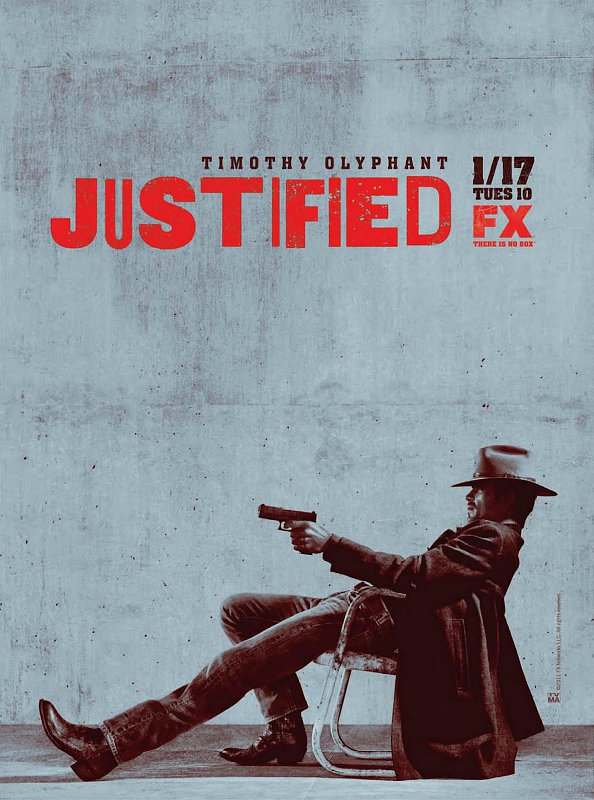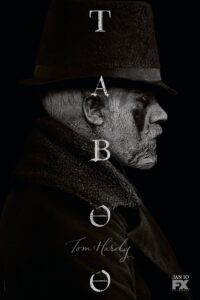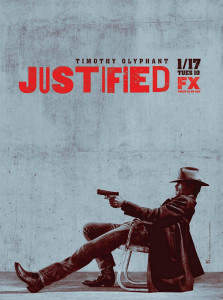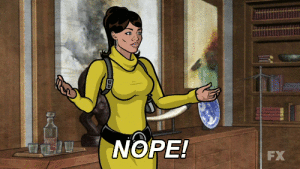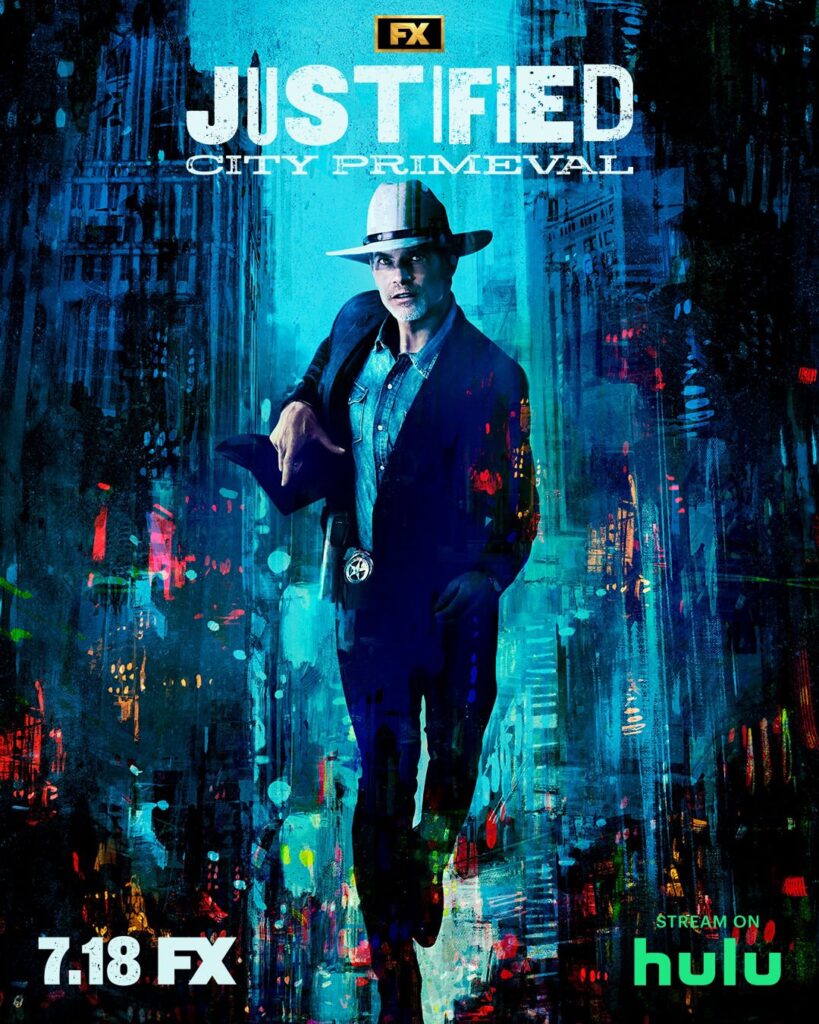
Too much of a good thing can be bad for you, and I think there is no better example than TV shows that get after-the-fact mini-series or additional seasons after their initial run, like Justified on FX. For those who are not aware, Justified was an FX show starring the infinitely talented Timothy Olyphant as US Marshal Raylan Givens, based on the book series written by the late Elmore Leonard. Givens is a modern day cowboy of the most badass variety, and Justified is a love letter to urban cowboys. I wish I could say the show was perfect, but it is far from that; in my opinion, it should only have had four seasons. I found season five to be bad except for the most epic villain death in television history (if you must know, look up “Justified Twenty-One Foot Rule” on YouTube and sit back and enjoy), and season six was dogshit. Therefore, when it was announced there would be a new mini-series ten or so years later, I remained cautiously optimistic and began to tune in each week via Hulu.
And what I found is unfortunately a lot like when Dexter ended, then returned to try and close the loop a little better the next time around.
Which is the subject of today’s episode of Cautionary Tales.
So all the way back in the year of our Lord 2015, I wrote a cautionary tale blog post about Justified’s lousy final season. To sum it up, the last season was very forced and it was apparent the writers had no more good ideas as they’d used them up in seasons 1-4, so the last season ended on a pathetic whimper and I won’t get into it because it’s a sore subject. But I knew all the way back then that there was a finite amount of talent in the writers’ room, and I had hoped that the big gap of time between the end of the original run and the revival would have given them the time to find a good story. I actually bothered to grab the book that this series is loosely based on, City Primeval by Elmore Leonard, just because I wanted a preview of what I might expect here. The book has a reputation for basically being a middle of the road title for Leonard’s career, but the reason I’ve brought it up is because of the context. This book has nothing to do with Raylan Givens. The book is actually about a character named Raymond Cruz, but the Justified producers decided to take Cruz out and plop Raylan in since the show, while never an enormous hit, had a modest viewing of two million viewers until the final season, which lost about half a million viewers after season five was NOT good and season six was even worse. They knew they had a built in audience that would likely return for a revival, so they decided to take the plot from the book and just assign it to Raylan instead.
And honestly, I think it was a mistake.
Not a huge mistake. Not a catastrophic “I hate this” mistake.
The problem is that this revival is nothing but wheel-spinning.
Let’s get into why this is today’s lesson of cautionary tales.
Naturally, massive spoilers for the ending of Justified and for episodes 1-7 of Justified: City Primeval. At the time of this post, the series finale has not aired, so this is more of a retrospective recap and discussion of where I think things went wrong.
Alright, so here’s the basic set up: in the original series, Raylan was reassigned back to his hometown of Harlan county Kentucky after he shot a mobster to death in a crowded restaurant in broad daylight in Miami. Long story short, the original series ends with him surviving Harlan and going back to Florida, which was where he was before the shooting. We pick up close to ten years later with a very seasoned Raylan dealing with his preteen daughter, Willa, whom he had with his ex-wife Winona, and Raylan catches a case that sends him up to Detroit, Michigan. Now, Raylan is very familiar with some Detroit mobsters that had a foothold in Harlan county because it’s a backwater town full of gross racist pieces of shit and so the drug trade is huge in Harlan and so is the general crime. After arriving to Detroit, he crosses paths with Clement Mansell, an Oklahoma Wildman who has no regard for literally anyone or anything. Through sheer dumb luck, the judge Raylan was working with runs into Mansell and Mansell snaps, killing the judge and his assistant in their car in the dead of night and taking the judge’s book full of blackmail material on dozens of Detroit citizens. Mansell, who is a career criminal but managed to walk on a technicality thanks to his lawyer-under-duress, Carolyn Wilder, then gets with another one of his associates named Sweetie to start blackmailing the people in the judge’s book to make money off them, citing that once he has enough, he and his side piece bimbo Sandy will retire to the tropics.
Now, that sounds like an alright idea on paper, but unfortunately, I think the bad writing from the final season carried over into this one. The biggest problem of the show so far is that while I get that Raylan is a fish out of water, none of the things that make him a great character other than that sly sense of humor and swagger are present in this mini-series.
Raylan Givens has two important things working for him as a US Marshal: he’s incredibly intelligent and observant and he’s an amazing shot. Those two traits define him as a character. Most of the fun of the original show is watching the Harlan criminals figure out that Raylan’s intelligence and perception mixed with being a crackshot make him next to impossible to evade or defeat. And what I’ve always loved about Raylan is that he is always fair. Almost every time he’s had to confront a convict or an escaped felon, he explains exactly what he’s going to do and what their situation is and he lets them make a choice. And 99% of the time, the dopes in Harlan county think they can either outthink or outdraw Raylan and they are dead wrong, pun intended. So I was excited to see Raylan in a new environment, ready to see him adjust and change and grow in this new city.
And yet I’ve gotten 7 episodes of absolutely nothing.
I’m someone who understands that a new series can mean that they make changes and I won’t necessarily always like said changes, and that’s okay. The issue I have with this particular change is that it makes me wonder why they bothered to tell this story if Raylan’s intelligence and amazing shooting skills are not at all in use this entire series. He never gets the drop on Mansell. He and the Detroit cops fumble the investigation so badly that I frankly would be annoyed if I were a real Detroit cop because they basically make them look incompetent. The decision to basically neuter Raylan and not give him any decent leads or even just use his own intuition to figure out how to get this guy behind bars is infuriating. The difference with this series in particular is that it’s not like Mansell is very clever in how he commits crimes. The guy is blatantly doing whatever he wants, but the Detroit cops are so stupid that they somehow still can’t lock him up. So forgetting the judge and assistant’s murders, he also attempts to rob an Albanian guy at gunpoint and breaks his leg when the guy doesn’t have any money for him to steal. He was caught on audio by the police trying to blackmail a civil servant. He murders his co-conspirator, Sweetie, and burns down the bar. He executes the guy whose condo he and his bimbo had been staying in, basically for no reason, in broad daylight in an upscale condo. Did you read all of that? Now explain to me how the heck the cops can’t find any hard evidence or anything to get this guy locked up?
I’ll tell you how: shoddy writing. And unfortunately, this has been a problem for as long as fiction has existed. Often, lazy writers don’t want to make a villain smart and always one step ahead of the protagonist because it’s “too hard,” so what they do instead is simply make a dumb protagonist who bumbles all the attempts to catch the villain. And that’s really the biggest issue I have with Justified: City Primeval. The writers decided to take the easy way out by making the Detroit cops idiots and make Raylan a neutered puppy who can’t anticipate any of Mansell’s moves or gather any evidence that would lead to some kind of conviction. All of the momentum of the previous show is not present in this mini-series.
And you know, I’d be less salty about it if the content we’re seeing that is not Raylan investigating Mansell was good, but it’s not. Now, I will say that Raylan and Carolyn Wilder’s fling is by far the only legitimate enjoyment I’ve gotten out of the show. You’re welcome to throw a Criminal Offensive Side Eye at me for it; I’ve wanted Timothy Olyphant to have a black female love interest for 10 years and this series gave me exactly what I’ve always wanted (just no sex scenes, grrrr) and I’m okay with my own bias in that regard, but everything else in the show suffers as a result of the show not delivering good content. The performances are good, don’t get me wrong, but nothing is even coming close to the enjoyment we had back in Harlan county with the kooky criminals and the interesting fellow marshals in Lexington. This revival comes across as a cash grab leaning on an established IP to get viewers.
And based on the reactions from the Justified fandom, I don’t think the show is hitting for them either. I’ve been hearing complaints about Raylan’s lack of police work since episode two. I personally had reserved judgment and was hoping it was going slow in the beginning, but it would pick up in the middle, but it didn’t. The needle has not moved an inch. The entire plot is only moving forward because of Mansell, not Raylan, so in the end, it makes the show feel like Raylan was the Decoy Protagonist and the show is instead all about Mansell, who is an irritating piece of shit in every regard, and it annoys me greatly that this actor’s fangirls have clogged the Tumblr tag with a bunch of disgusting simping for a man who murdered his own mother in cold blood and threatened to rape an underage girl in front of her father. But that’s a long story I’m not gonna get into.
The central fact of the matter is that if you’re going to resurrect a show, then you have to do your due diligence in—and pun fully intended here—justifying its existence. From what I read of the book, it was a decent story that was worth telling. This story is not worth telling. It adds nothing to Raylan’s dimensions as a character and the “rivalry” they are attempting to set up with Raylan vs. Mansell is weak because the show has not developed it. I went through my head and thought about how many scenes Raylan and Mansell have had together and oddly enough, it’s not very much. He gets under Raylan’s skin because he’s a slimeball and knows it and yet the laws of man somehow just don’t apply to this guy, but that’s it. There is nowhere near the history between them like some of Raylan’s far better opponents like Boyd Crowder or Dickie Bennett. They might as well have just not made this revival in the first place if the only thing that would be good about it was Raylan gettin’ it on with a smart, powerful black woman who can handle him in a way none of the skanks he’s slept with in the past ever have. (Yes, I said it. Every woman Raylan has ever slept with in the original show was a skank. Come at me, scrublords, I’m ripped. )
Some of the issue, too, is that the supporting cast is nowhere near as strong as the one in the show’s original run. Our cast of characters is too big and so no one’s getting the focus they should have in order to make them more interesting. I already mentioned that Mansell has a stranglehold on the screentime and everyone else is left with pieces. There have been two majorly important conversations between Raylan and Carolyn that were cut short that I think was a massive mistake: seeing how they hooked up for the first time, and this most recent episode when she bluntly asked him how he would get Mansell’s prints on the murder weapon. We should have seen more content for Carolyn, Sweetie, and the detective that Raylan’s been partnered with, Wendell. None of these relationships are elaborated on enough to really make us care about what’s transpiring. It’s all too much of a light touch with Mansell as the focus, and frankly, if the new show is so enamored with this douche, then you should have just adapted the book as-is instead of including Raylan since Raylan isn’t getting to do anything the entire time.
I also want to take a little aside here and mention a pet peeve of mine. Anyone who knows me knows about my theory about what I call White Bitch Syndrome. White Bitch Syndrome, in a nutshell, is when writers coddle white female characters (and 90% of the time they’re also blonde) when everyone else in a story has to pay for their mistakes and live with the consequences of their actions. The number one reason I hated the final season of Justified was because the show went full White Bitch Syndrome with a character named Ava Crowder, who basically spent all six seasons being a reprehensible piece of shit and got away with everything solely because white woman. Now, the bimbo Sandy Stanton is nowhere near the level of cunt that Ava Crowder is—and yes, I use that term sparingly, but Ava Crowder has earned it, trust me—but she is still being coddled and I absolutely despise the way that she’s been Mansell’s accomplice, but only now does she realize he doesn’t care about anyone but himself and would kill her the second she defected. It’s not fair for you to make all these other characters pay for their actions, but she gets to walk because she’s blonde, white, and female, but again, this was Justified’s MO in the original show. Ava got away with everything and Winona’s stupid ass walked out on Raylan too without a scratch on her, cementing her as one of the dumbest characters of all time since there is no man in Harlan county like Raylan and any woman with sense would jump at the chance to be with him. But I digress.
I guess, overall, the words I would use for this revival are “unnecessary” and “unsatisfying.” It doesn’t feel like it needed to come back if this was the material it returned to in the end. Is it better than the last season? Eh. In some ways, yes. There are better characters here and Raylan isn’t acting like a complete psychopath willing to throw his badge and life away just to kill Boyd Crowder, but at the same time, this isn’t a worthy story for Raylan Givens, especially if like I suspect, they kill him off in the series finale. This was not the right choice for him and it seems to have fallen into the traps like the Dexter revival I mentioned above (keep in mind, I never watched Dexter, but I knew it had one of the most hated finales of all-time and I know about the revival’s reception only because my dad watched it over winter break one year and we chatted about how it went).
Is it possible the series finale wows me and fixes all the problems I had in episodes 1-7? Yes. Is it likely? No. My guess is that they left all the action in the final episode so it’s an incredibly bottom-heavy series with an unsatisfying conclusion. Rest assured, if they kill Raylan off after an incredibly lackluster season, I will simply go into denial like I did with the original final season, as I sadly have had to do with a lot of shows I used to love.
So what can we learn from this debacle?
A few things, really. First, don’t bring back a beloved character unless you have something relevant to say about them or about any sort of important subject matter that you want to write about. Second, if you are more interested in writing about the antagonist than the protagonist, then you need to establish that right out of the gate instead of leading people on to think the story is centered on the protagonist. Third, learn what scenes need to be elaborated on and what can get cut that won’t be detrimental to the overall story. Fourth, don’t be lazy and make a dumb protagonist so the antagonist can get away with everything; do the work of writing a competent antagonist and a competent protagonist equally. Because if you don’t do that, you end up with a trope that has a name I forget that has to do with Lex Luthor; don’t write your bad guy getting away with his crimes so often that it induces apathy within your audience because Status Quo is God. This trope refers to Lex Luthor as the main example of how a conflict between good and evil can get boring if the bad guy ALWAYS gets away with his crimes so that the work of fiction can continue to be made. We all know that Lex is never going to jail—not for anything serious that he’s done and not for any significant length of time if they do get him on something eventually—and so Superman defeating him time and time again can get old if you’re not adding any new dimensions to the struggle. Lex fared a little better in Superman: The Animated Series because Supes and Lex were engaged in, for lack of a better word, a cold war. Lex does a bunch of illegal, shady shit and Clark tries to stop it or tries to gather evidence to either put Lex away or destroy his chances at future crimes, and that worked for that show’s format. You have to balance it with victories and losses for both sides or your audiences will lose interest.
And frankly, that’s about what happened by the time I finished watching episode 7 of City Primeval. I’ve just lost interest in what they decided to focus on and this isn’t a return to form for Raylan Givens nor this writers’ room. But what can you expect when the last season was also a dried turd?
If nothing else, I’ll commend them for giving Raylan an age-appropriate, interesting love interest with whom he had actual chemistry. That’s the best thing I can say for City Primeval, personally. I guess we’ll see if they somehow buck the system and stick the landing, but my guess is I’ll be just as disappointed with this finale as I was with the original one, and that’s a damn shame considering the enormous talent of the cast in this mini-series.
Better luck next time, my long legged cowboy boyfriend.
“On this lonely road
Trying to make it home
Doin’ by my lonesome, pissed off
Who wants some?
See them long, hard times to come…”
